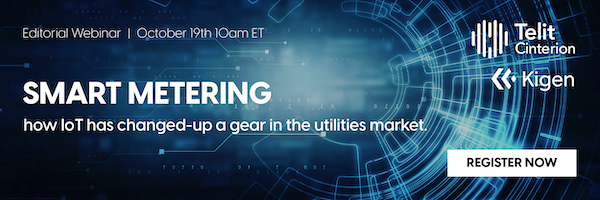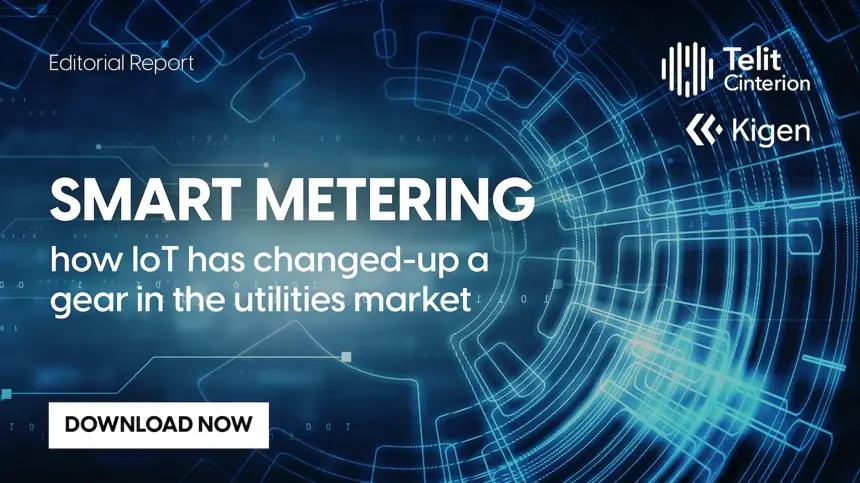Not enough is being made of smart meter data in the UK, despite one of the most expansive and productive metering rollouts in Europe. The existing system for regulation and management of energy data is strangling tech innovation and sustainability drives, says Energy Systems Catapult. The group, one of nine industry-focused national development centres funded by non-departmental agency Innovate UK, has called for the “co-creation” of a national “data institution” to facilitate appropriate and secure access to meter data – so innovators can spur cost savings, energy savings, and grid flexibility.
A new report, co-authored by Data Communications Company (DCC), in charge of the UK’s meter infrastructure, recommends four “urgent action(s)”: to unlock “smart meter system” data (one) and maximise access to it (two), by establishing a new national energy data management facility (three), with a strict cybersecurity brief – to “minimise risk” (four). This way, the UK can “enable countless uses for the public good, from energy sector optimisation and the accelerated deployment of renewables, to better health and social care outcomes”, says the report.
The UK has deployed around 28 million smart meters, generating around 1.6 billion data transactions per month, in around 16 million homes – which equates to “more than half of all the households in Great Britain”. The result, says the report, is “over 800,000 tonnes of carbon savings per year”. It states: “But this is just starting to scratch the surface… Greater transparency of, and access to, smart meter data can unleash the transformative potential of the system. It will allow existing and new organisations to innovate, engage consumers, and deliver system benefits.”
Energy Systems Catapult writes that lots of groups (“from local authorities to innovative start-ups”) have developed lots of use cases that make critical use of smart meter data. These use cases range “from supporting health and social care challenges for the vulnerable in our society, through to doing very clever things with analytics to optimise systems and balance our grid”, it says. Energy Systems Catapult states that “current incentives and governance system… do not promote the use of smart meter data to the fullest potential”.
It writes that the “cost of living crisis and the challenges the energy system” in the UK make its proposals urgent. An estimated 6.7 million homes were defined as ‘fuel poor’ in the UK in 2022. “We call on all relevant organisations – the DCC, Ofgem, the Department for Energy Security and Net Zero, [energy] retailers and networks – to come together with urgency and co-create the data access regime set out by this paper, driven by public good,” it says in the report. Its call for action chimes with the UK government’s “desire for a pro-innovation, pro-growth data landscape”, it writes.
It expands on the four proposals. Its first, to “unlock” system data, is geared to help fuel poor households. It explains: “The DCC has system data available today relating to households which are off gas, low on credit, or self-disconnecting.” As it stands, the DCC requires approval from Ofgem to make data available; the paper demands a pan-industry regulatory change to data governance and legislation obligations in order to expedite and simplify such requests – where data might be made available to organisations offering support for fuel poor homes”.
The second proposal, to maximise data access, puts focus on existing mechanisms, which frustrate third-party innovators in the energy industry because of their “cost, complexity, and timescales”. It writes: “The conversion rate of data-driven concepts and public interest use cases into tangible services remains very low.” The ultimate goal for the Energy Systems Catapult is to establish a new “data institution” to deal with it all; but it acknowledges such ambition could take “until the later years of this decade” and shorter-term fixes are required.
It wants short-term provisions – a live energy data ‘sandbox’, simpler technical specifications, closer collaboration – for solution providers to test concepts and products. But the new data institution – proposed as “single-entity”, “not-for-profit”, “technically capable”, “collaborative”, and “driven by public good” – is the key recommendation. This will “oversee the governance of, access to, and utilisation of smart meter data for public good”, it writes. “The purpose… would be to steward data on behalf of others.”
It adds: “Given public sensitivity about consumer data being held and used by the energy sector… the challenge… is as much about organisational and political issues as technical changes to policy and regulation.” The final proposal, about “minimising risk”, is linked to the “deployment of privacy enhancing technologies”. It writes: “The categories of smart meter data are broad and additional data could be available in time. Technologies to ensure privacy and manage re-identification risks and biases within the data should be a key consideration for smart meter data use.”
Guy Newey, chief executive at Energy Systems Catapult, said: “If we want to unleash the innovation we need from the digitalisation of energy, we need to make it easier to access smart meter data in a safe and responsible way. This is a vast national asset, which can help innovators… to create new products and services to improve the efficiency of the system, cut fuel poverty, and drive down emissions. The UK government, industry, and [regulator] must work together to accelerate changes to the regulatory framework to create a fit for purpose, data access regime.”
Angus Flett, chief executive at the Data Communications Company, said: “Providing secure access to [smart meter] data – appropriately and with consumer trust at the forefront – can and must be used to enable new services and help to tackle some of society’s greatest challenges. With the support and collaboration of stakeholders and industry, we can put in place the smart meter data access regime needed for the benefit of households in fuel poverty and lay the foundations for future use cases which deliver public benefit and drive decarbonisation.”
For more on the subject of smart metering, join RCR’s smart-metering webinar on October 19 – with Telit Cinterion, Kigen, Transforma Insights, and Ubiik; sign up here, or by clicking on the image bel



